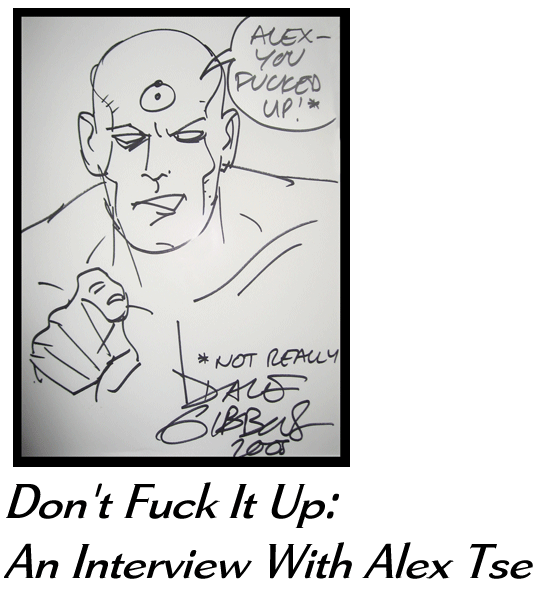
The first issue of the comic book mini-series Watchmen was released in September 1986 and, twelve installments later, concluded in October 1987. Written by Alan Moore and illustrated by Dave Gibbons, Watchmen harnessed tropes from superhero comic books, crime novels, and science fiction to tell the story of a world very much like our own at that time—with rampant crime in New York City and national paranoia over Russian incursions into Afghanistan—yet distorted by the presence of super-powered beings and caped heroes. Within those dozen issues, Moore and Gibbons did to superheroes what Sam Peckinpah did to cowboys and the wild west.
Somebody had to make a movie.
After numerous aborted attempts with notable directors attached then unattached (Terry Gilliam, Darren Aronofsky), the Watchmen movie is now set for a March 6 release and is directed by Zack Snyder, whose previous films include the remake of Dawn of the Dead and 300, based off the graphic novel by Frank Miller.
The script, in its final form, is credited to Alex Tse, a young writer whose previous work includes a Showtime pilot called Sucker Free City, directed by Spike Lee, about inter-racial relationships in San Francisco’s Hunter’s Point and Chinatown. Yet, though he did numerous uncredited re-writes, Watchmen is his first big feature on which he’s attributed his name.
Tse’s upcoming projects include adaptations of Ray Bradbury’s story collection The Illustrated Man, which also has Zack Snyder attached; The Winter of Frankie Machine based on the novel by Don Winslow which is set to reunite director Michael Mann with Robert DeNiro; and Ninja Scroll, based on the seminal anime, which is being produced by Leonardo DiCaprio.
Fawlt Magazine: This is the first feature on which you’ve actually attached your name, and the expectations are pretty big. How did you get it?
Alex Tse: Gladiator fight. I had to work for it. I was a big underdog. What gave me the opportunity was that I’d done a lot of work for Warner Brothers, even though I didn’t have any screen credits. But they were happy with my work and so when I found out they had the rights to Watchmen, I told my representatives, Just get me in the room. I know everyone and their mother will be going for it, but get me in the room, let me say what I have to say, and if they’re unimpressed they’re unimpressed. But I have to be able to make the effort.
I got a phone call from one of the producers. That went well. They gave me some existing drafts and I saw they wanted to do a real Watchmen movie. If I talked to the producer and read the drafts and discovered they wanted to do what they did to League of Extraordinary Gentlemen, or make Justice League, then I wouldn’t have bothered. But it was clear they wanted to be faithful.
I did a fifteen-page scene-by-scene in how I’d do the movie. There was one other big writer in it, and it boiled down to me and him. Because I’d done as much work as I did, the producers fought for me.
After I got it, my agent said, “To be honest, I never thought you had a shot at this.” I had to thank Larry Gordon and Lloyd Levin for giving me that shot.
Do you know how specifically your pitch was different?
Nope. But the other guy was a bigger writer so there’s no way he did as much work as I did. He just wouldn’t have to in this situation.
-----
Page 1 2 3 4 5 6

